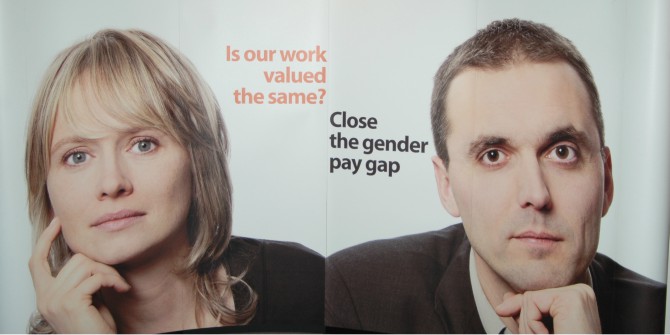
Underperformance in business is like a potentially serious illness. It’s imperative to identify it early, before it becomes insurmountable. Fortunately, our data-driven age provides an unprecedented richness of material for proactive leaders to sift in search of warning signs.
Once they recognise a red flag, however, what can managers do? After all, detection is one thing, and diagnosis another. Organisations’ increasing dependence on advanced tech further complicates matters. With a plethora of suppliers and vendors under contract, how to determine which one – if any – may be partly or wholly responsible for underperformance?
Our recent paper finds evidence that managers trying to pinpoint the performance impact of a single supplier can look to other firms’ experience with that same supplier. In the paper, we call this vicarious performance feedback.
Performance feedback is a well-recognised concept in the research literature whereby managers initiate so-called “problemistic search” when performance falls short of expectations. Vicarious performance feedback is a variant of this phenomenon, in which managers attempt to trace underperformance to its origins by evaluating the track record of firms with a shared supplier.
The setting for our research – Formula 1 auto racing – may seem incongruous. But the ultra-competitive world of Formula 1 bears many key resemblances to business, especially as concerns the tangled relationship between performance and suppliers. Many factors can play into performance in F1 racing leagues, from the skill of drivers to the aerodynamics and engine functioning of the cars themselves. Most F1 teams purchase engines from outside suppliers rather than build them in-house.
For a sport in which the difference between greatness and mediocrity is often measured in milliseconds, this creates a problem when it comes to explaining how underperformance occurs. Is the tiny deficit that spells defeat due to the driver, or to something lacking in the engine? Our initial interviews with F1 professionals bore this out. One engineer told us that it was fairly easy to identify problems with a car but “finding the cause, as you may imagine, is definitely more difficult.”
Our dataset comprised F1 team information (including their suppliers) for the period 1981-2013, as well as rankings and racing results. Our analysis revealed patterns of behaviour that were more nuanced than an increased likelihood to cut ties with a supplier in cases of underperformance. We found that a strong predictor of an underperforming team’s probability of switching engine suppliers was the number of other teams using that same supplier that were also underperforming. The larger the proportion of shared-supplier teams in the F1 network with declining performance, the more likely it was that peer teams would cut ties with that supplier when their own results began to disappoint. Therefore, we conclude that F1 teams took their competitors’ experience into account as a key factor in evaluating a shared supplier.
There was one important exception. F1 teams that were geographically close to their suppliers appeared less influenced by vicarious performance feedback. Presumably, given the choice between informed guesses based on peer outcomes and first-hand information gathering via site visits and face-to-face meetings, teams placed great weight on the latter – despite the potential bias inherent in obtaining information directly from suppliers.
What does all this mean for companies grappling with underperformance? Simply put, managers could probably do worse than to follow the example of F1 teams (if they aren’t doing so already) and pay close attention to vicarious performance feedback. Ideally, this would include proactive data gathering on shared-supplier peer firms so that, should underperformance occur, managers will have a deep well of evidence to draw from as they attempt to trace causation. One of the F1 engineers we interviewed put it well: “The more cars use your engine, the more samples you have, the more accurate your data are, and the easier it is to assess the performance of your engine compared to your competitors.”
For their part, suppliers should remember the role that vicarious performance feedback plays in how their customers evaluate products and services. If one customer flames out in spectacular fashion, it may lead other customers’ to cut ties, if the high-profile failure is presumed (fairly or unfairly) to have something to do with the supplier. This underscores the need for frequent strategic communications with all customers, especially when a prominent one is experiencing difficulties.
♣♣♣
Notes:
- This blog post is based on Tie Dissolution in Market Networks: A Theory of Vicarious Performance Feedback, Administrative Science Quarterly, 2020.
- The post expresses the views of its author(s), not the position of LSE Business Review or the London School of Economics.
- Featured image by jganesh, under a Pixabay licence
- When you leave a comment, you’re agreeing to our Comment Policy
 David Clough is an assistant professor at the University of British Columbia’s Sauder School of Business in Vancouver. He is a member of the organisational behaviour and human resources division and the entrepreneurship and innovation group. He holds a PhD in management from INSEAD, where he was a member of the entrepreneurship and family enterprise area.
David Clough is an assistant professor at the University of British Columbia’s Sauder School of Business in Vancouver. He is a member of the organisational behaviour and human resources division and the entrepreneurship and innovation group. He holds a PhD in management from INSEAD, where he was a member of the entrepreneurship and family enterprise area.
 Henning Piezunka is an assistant professor of entrepreneurship at INSEAD, in Fontainebleau, France. He got his PhD at Stanford University, an MSc at the LSE and a Diplom Kaufmann from the University of Mannheim (Germany). Before joining academia, he was an entrepreneur. He co-founded a web design company in 1998, which served clients in more than 80 countries and had 25 full-time employees before he sold it in 2015. Henning’s teaching focuses on the formation of new business ventures.
Henning Piezunka is an assistant professor of entrepreneurship at INSEAD, in Fontainebleau, France. He got his PhD at Stanford University, an MSc at the LSE and a Diplom Kaufmann from the University of Mannheim (Germany). Before joining academia, he was an entrepreneur. He co-founded a web design company in 1998, which served clients in more than 80 countries and had 25 full-time employees before he sold it in 2015. Henning’s teaching focuses on the formation of new business ventures.






In today’s competitive world, is it possible to get accurate vicarious performance feedback?
Nowadays, companies are trying to secure data so that the competitor shall not get a sense of their performance. Even if manager gets the feedback, can he reLy on it?